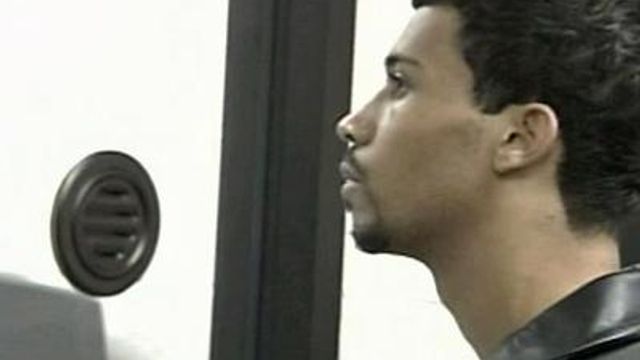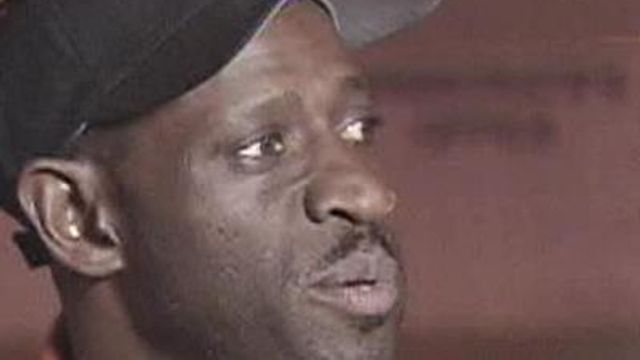WILSON, N.C. — A murder charge against a Wilson man who spent three years in jail awaiting trial was dismissed, Wednesday but he now faces a reduced charge of accessory after the fact to murder.
Forsyth County Assistant District Attorney Belinda Foster dismissed the first-degree murder charge against James Johnson, 21, because of a lack of evidence to prove beyond a reasonable doubt that he assisted in the 2004 death of Brittany Willis.
Charges of rape, kidnapping and robbery were also dropped.
"This is not how I wanted it to be," Johnson said Wednesday evening, with his parents, his attorney, and Rev. William Barber with the state chapter of the NAACP, by his side as he surrendered to police.
The punishment for accessory after the fact to murder is a Class C felony and punishable for up to 44 to 58 months in prison.
Foster was appointed as special prosecutor in October to determine if the case should go to trial following a high-profile campaign by the North Carolina Chapter of the National Association for the Advancement of Colored People to dismiss the case.
She had no comment about the case, citing rules of professional conduct that prohibit prosecutors from talking about the case.
Barber called the decision to reduce charges "a step toward victory" but has insisted Johnson should be treated as a witness, not as a participant, in the crime.
"James is an innocent young man who was falsely accused. It is not yet a total victory because one count of accessory remains, but we will celebrate tonight, and pick up the fight for James's full exoneration tomorrow," Barber said.
"For 42 months, we've had this cloud of the murder, rape, kidnappings -- all of the things we knew were false -- hanging over our heads," Johnson's father, Arthur Johnson, said. "That has gone away. It's disappeared. Now, we have one more obstacle, and we're prepared for the fight for that tomorrow."
Johnson was free on a $100,000 unsecured bond Wednesday. His first court appearance is scheduled for 9 a.m. Friday.
Willis, a 17-year-old high-school soccer player, was found dead in a field near the Brentwood Shopping Center in Wilson. Investigators said she had been raped and that robbery was a motive for the crime.
Johnson was later arrested and charged with first-degree murder and the other charges in the case.
The Willis family could not be reached for comment Wednesday evening, but through friends, have said they feel Johnson bears some responsibility for waiting days to go to police with information about the crime.
Johnson has long insisted he is innocent, and no physical evidence connected him to the homicide or rape. Another man who is serving life in prison for Willis's death, Kenneth Meeks, has said Johnson was not involved.
Johnson turned in Meeks to police three days later for the crime after, he said, Meeks took him to the crime scene to see the body. Under duress, Johnson said, he helped clean Meeks' fingerprints off Willis' sport utility vehicle.
The case has never gone to trial, and Johnson stayed in jail for under a $1 million bond until a judge reduced bond in September to $60,000.
The NAACP has continued its campaign for the charges to be dropped and received help from Wilson congressman G. K. Butterfield, D-N.C., who, earlier this month, asked the U.S. Attorney General for an investigation to determine whether Johnson's constitutional rights have been violated.
Barber also raised concerns on Tuesday about Foster's handling of the review, claiming the case has not been evaluated from a fresh perspective, citing a recent transcript of an interview with Meeks by a Wilson police investigator who has worked on the case since its beginning.
In a news release, Foster said there was a two-month delay in locating an essential witness and that neither the NAACP's public statements nor other public comments by those involved in the case "affected her due-diligence in fairly assessing the merits of the case."
"The facts and law, alone, led to her decision," the news release said.





